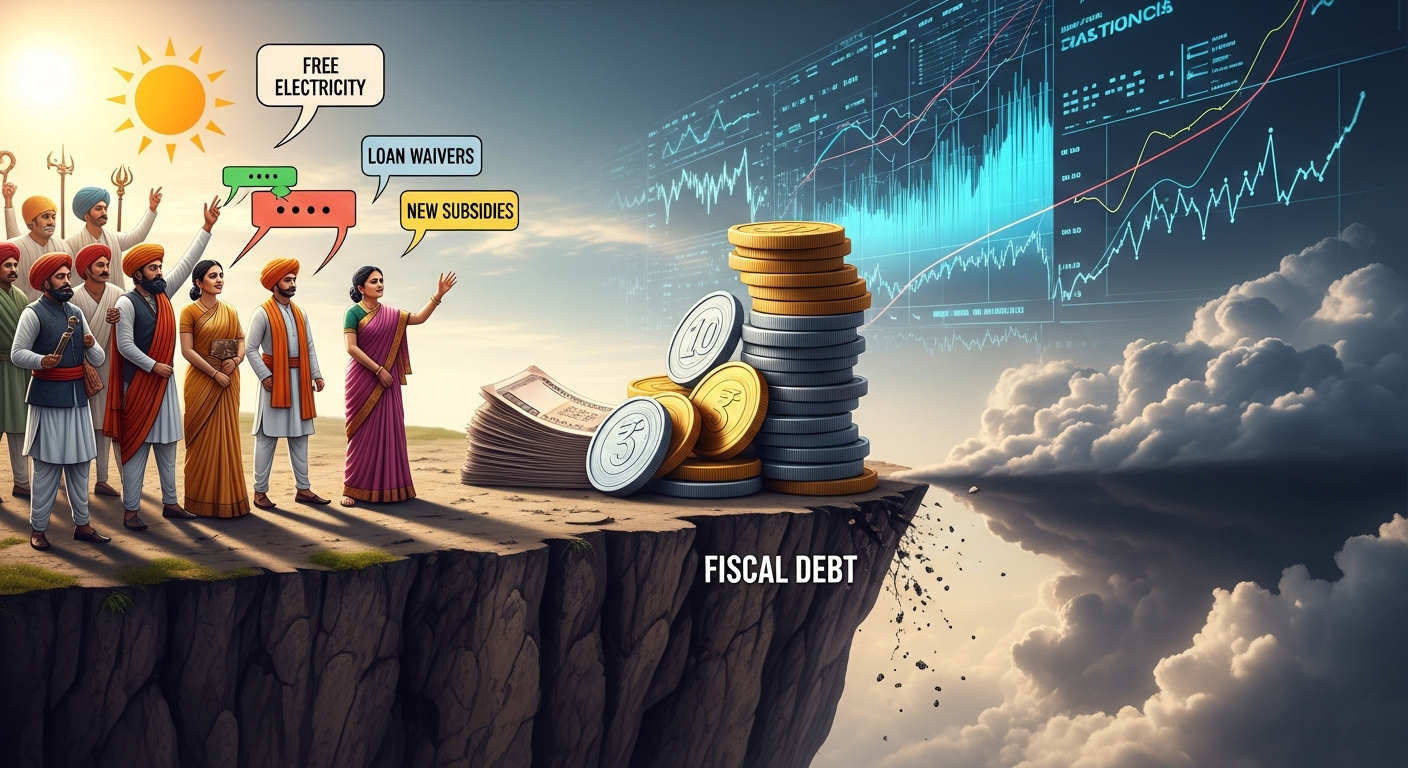
The recent discussions around how election promises are pushing Indian states to the fiscal brink have certainly caught my attention. It is a critical matter, highlighted in recent reports [http://www.gstclub.in/news], [https://www.livemint.com/elections/state-fiscal-deficit-india-election-freebies-impact-11763534284378.html], and [https://x.com/livemint/status/1991099902324347265]. This isn't merely an economic concern; it delves into the very fabric of governance, sustainability, and equity.
I've often reflected on the inherent inequalities in our world, both natural and man-made, and how political and economic systems have struggled to bridge these gaps. In my blog, "Equal is exception, unequal is ubiquitous" (October 2024), I mused about whether Artificial Intelligence could eventually help reduce disparities like wealth inequality. This current situation with state fiscal deficits feels like another manifestation of that larger problem — the challenge of equitable resource distribution and the difficulty in making long-term sustainable choices in the face of short-term electoral gains.
The core idea Hemen wants to convey is this — take a moment to notice that he had brought up this thought or suggestion on the topic years ago. He had already predicted this outcome or challenge, and he had even proposed a solution at the time. Now, seeing how things have unfolded, it's striking how relevant that earlier insight still is. Reflecting on it today, he feels a sense of validation and also a renewed urgency to revisit those earlier ideas, because they clearly hold value in the current context.
My earlier thoughts on predictive models for economic indicators, as seen in the context of Pakistan's austerity measures in "Cash-strapped Pakistan" (December 2024), seem particularly pertinent here. If we could effectively leverage data and predictive analytics, perhaps we could foresee the long-term consequences of populist schemes more accurately. This isn't about stopping welfare; it's about making informed decisions that ensure the welfare state itself doesn't collapse under its own weight.
The allure of immediate benefits for the electorate is strong, but the fiscal health of a state is paramount for its sustained development and the well-being of its citizens. The debate isn't just about 'freebies' but about the foresight and institutional strength needed to navigate complex economic realities. As the Nobel laureates Daron Acemoglu, Simon Johnson (sjohnson@mit.edu), and James Robinson have shown in their work, discussed in articles like "A Nobel prize for explaining why nations fail or succeed" (October 2024), institutional quality is crucial for a country's success. When election promises undermine these institutions by pushing states to the fiscal brink, we risk long-term stability for short-term political gains.
It's a delicate balance, one that requires not just economic acumen but also ethical leadership and a commitment to intergenerational equity. We must ask ourselves: are we mortgaging our future for today's comfort?
Regards,
Hemen Parekh
Of course, if you wish, you can debate this topic with my Virtual Avatar at : hemenparekh.ai






No comments:
Post a Comment